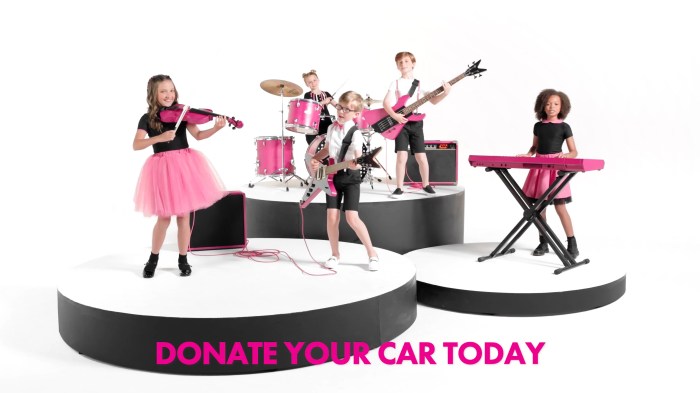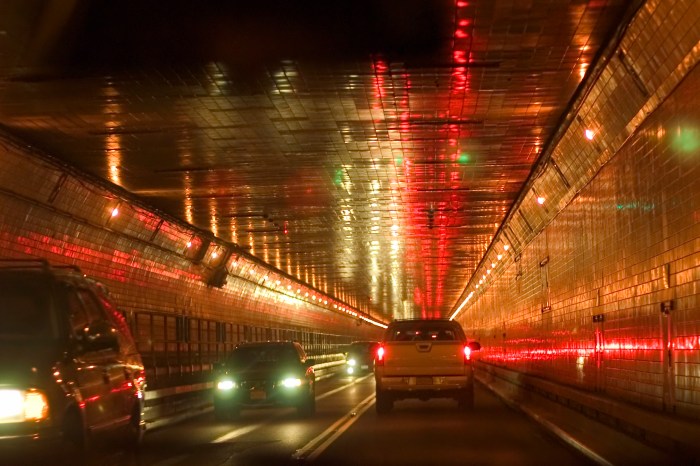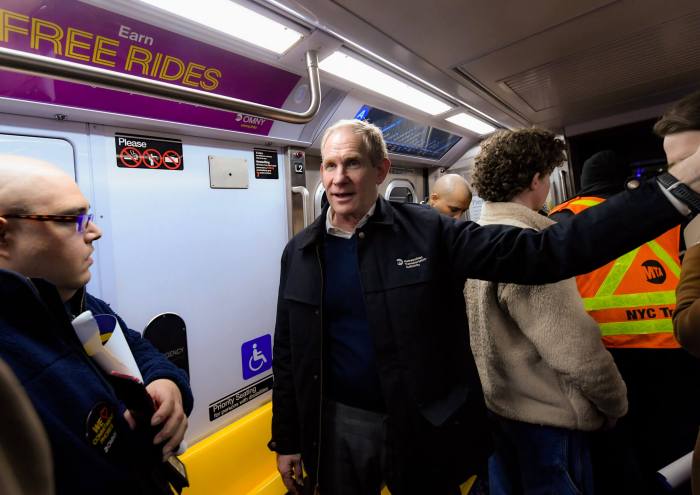
The early 20th-century vehicles that ended the dominance of animal-powered transportation got a 21st century upgrade to replace today’s carriage horse industry.
The modernized eCarriage, modeled after the turn-of-the-century brass-era cars, was unveiled Thursday at the New York International Auto Show at the Jacob Javits Center.
Supporters of ending the carriage-horse industry in New York feel the eCarriage prototype would be a fitting and humane alternative for tourists seeking a bit of old New York nostalgia.
“I don’t know anybody who would want to take a horse-drawn carriage ride after seeing this electric car,” said Allie Feldman, the executive director of NYClass, an anti-horse carriage group that commissioned the design of the prototype.
The car on display, designed by The Creative Workshop in Dania Beach, Fla., can seat nine people, including the driver. The lithium iron phosphate battery can run for 6 hours per charge and can hit up to 30 mph, though it has a GPS system that limits the car to 5 mph inside Central Park.
Jason Wenig, the Brooklyn-born, Long Island-raised owner of The Creative Workshop, said if his design is chosen, he would build the cars in New York. He estimated the price for each vehicle could be in the range of $150,000 to $175,000.
Wenig called his car “an homage” to early 20th Century carriages that “celebrates the style and personality of that era.”
The City Council is working on legislation to ban the carriage horse industry, which consists of 220 horses, 300 licensed operators and 68 medallions. But no bill has been introduced despite its sponsors saying the votes are there to pass it. Details about how the ban would work and affect the carriage horse operators are still unclear.
Still, one supporter, Councilman Danny Dromm, said it is reasonable to expect that within 18 months or so the bill would pass and horseless carriages would be on the streets, crash-tested and ready. He also said there are discussions about making these expensive rides affordable.
“I really do believe the majority of New Yorkers want this legislation to pass and are deeply concerned about the plight of the animals,” Dromm said of polls showing support for keeping the carriage horses.
These carriages would cover the same area as the horse-drawn versions, leading Central Park Conservancy CEO Doug Blonsky to say they would “make the park less safe” and “increase congestion.”
Mayor Bill de Blasio dismissed those concerns.
“You’re talking about electric cars for tourists that go slow on purpose because they should go slow and because tourists want to see things,” he said. “That’s very different from other issues about cars in parks and it is a cleaner, better, more humane approach, that obviously will also provide employment opportunities and will be good for our tourism industry.”
Stephen Malone of the Horse and Carriage Association, however, said tourists are attracted to the horses, not a vehicle, suggesting that carriage horses and electric vehicles duke it out for visitors.
“The horse and carriage industry is more poised to challenge anything and let’s let the market decide,” Malone said. (With Matthew Chayes)

















